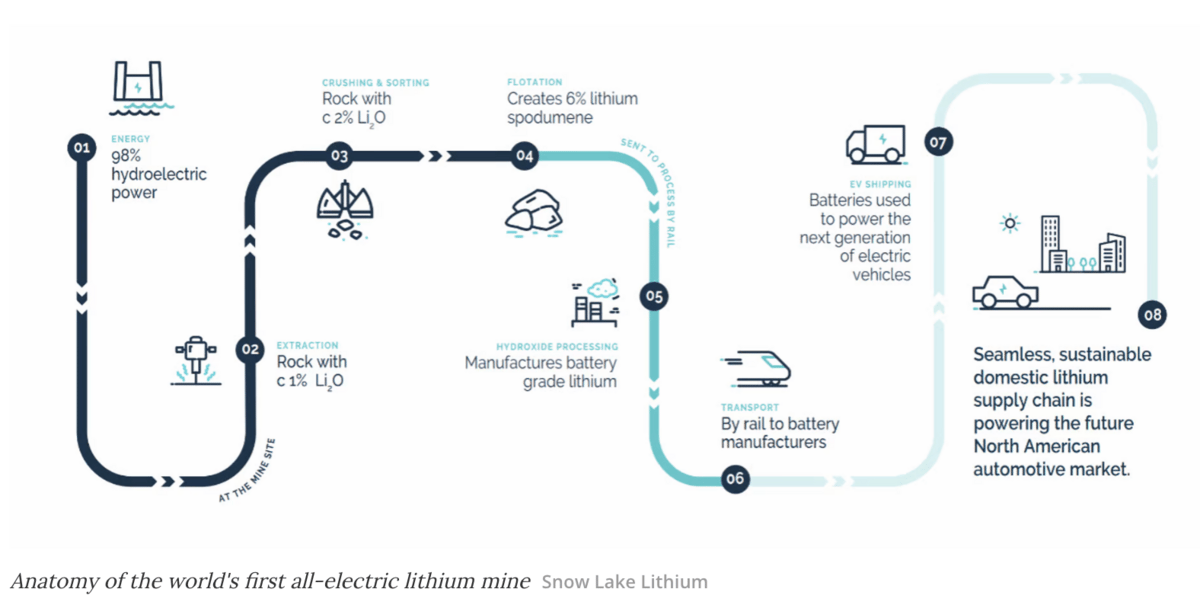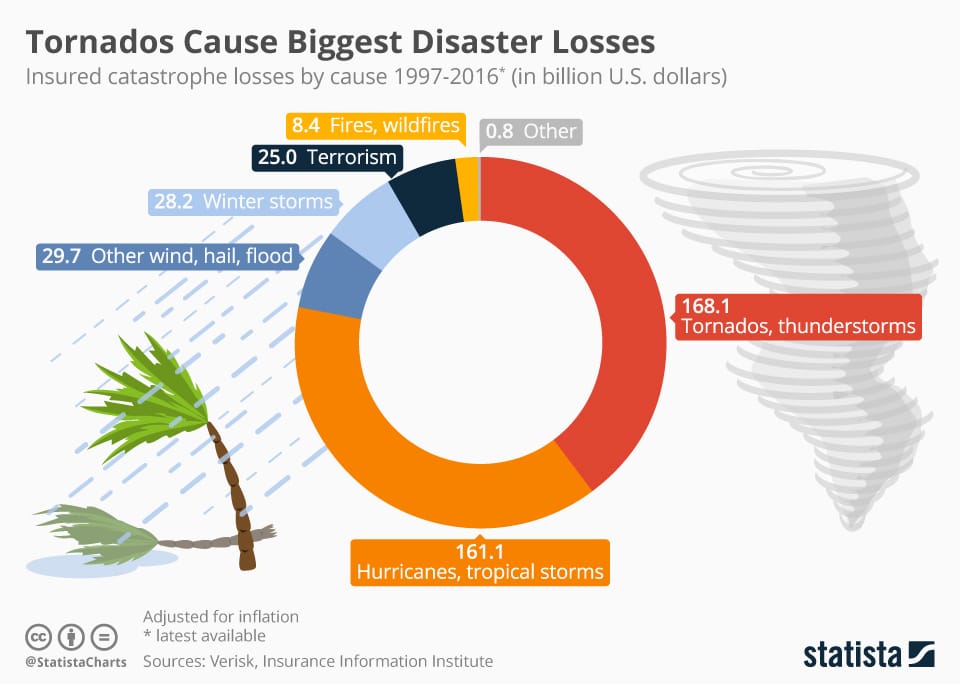In today’s edition:
🛰 Tracking methane from space
⚡️ First electric lithium mine
🌍 COP27 debrief
Forwarded on this email by a friend?
💼 Big Business (1-minute read)
$20bn to wean Indonesia off of coal
The problem: Indonesia is the world’s third-largest coal producer, which poses issues for the country’s and the world's CO2 emissions.
What’s happened: Indonesia has signed a “Just Energy Transition Partnership”, which will offer the coal-dependent nation a mix of finance, grants and loans from the US, Japan, and other wealthier nations to help pay for the country’s shift to renewable energy.
Details: A $20bn package, including $10bn in public funding and $10bn from private sector investors. Indonesia has pledged to generate a third of its energy from renewable sources by 2030.
Global movement: This deal is the second in the trend of emerging economies being incentivised to stop using coal - the first being South Africa’s $8.5bn deal, and yesterday, US Vice President Harris announced a $20mn clean energy fund for Vietnam.

ESMA to introduce rules on ESG fund names to tackle greenwashing
What happened: The European Securities and Markets Authority (ESMA) has launched a consultation on requirements for using sustainability-related terms in fund names.
The details: The EU's financial markets regulator is seeking to introduce a quantitative threshold of 80% of all fund investments needing to be in sustainable companies for ESG-related terms to feature in the name; this aligns with America’s Securities and Exchange Commissions rules.
Why it matters: Funds' names are a powerful "marketing tool". The SEC’s rule change has had significant pushback from the mutual fund industry, arguing it would hit asset managers with increased costs. ESMA bringing out its own regulatory effort could reduce mutual funds' leverage to fight the rules.
Tracking methane emission from space
With the IPCC concluding that at least 25% of global heating is attributable to methane, the UN is launching a new satellite system, known as the Methan Alert and Response System (MARS), to detect methane ‘hotspots’ from space. The data collected will be made publicly available, with major emission leakage events relayed to the necessary private and public powers to take action. In the first instance, data will be collected from the energy sector alongside livestock and rice production in the agriculture sector.
🤖 Future of Tech (1-minute read)
Plans for the world's first electric lithium mine: Birth of a North American supply chain
Challenge: The mining industry contributes 2 to 3 per cent of global CO2 emissions and has a large role to play in emissions reduction - contributing key mineral components to produce climate technologies. At the same time, there is a critical supply-demand gap in certain key minerals.
Green innovators: Snow Lake Resources Ltd. has outlined plans to develop over 55,000 acres in Manitoba, Canada, into the world’s first all-electric lithium mine, utilising 98% renewable hydroelectricity. The operation is also rock-based, as opposed to brine-based lithium extraction, reducing the likelihood of groundwater contamination.
Drop in the Ocean: If everything goes to plan, Snow Lake will supply enough lithium into America to make batteries for 500,000 electric cars a year. (vs the 17-million-odd vehicles sold annually) but will provide a useful test case for technologies supporting sustainable extraction.

Giant wind farm planned for Egyptian desert
Construction of the wind farm is due to begin in 2024, with the financiers backing the project currently looking at 2 locations in Egypt’s Western Desert where wind speeds can reach 10m per second (22 mph). Once complete, the wind farm will have a capacity of roughly one-fifth of what the UK has today for all forms of renewable energy. An African focus: One of the project’s broader aims is to increase renewable-energy capacity in Africa 3x by 2025, with similar projects being considered in Zimbabwe, Guinea and Tunisia. Africa has some of the lowest per-capita generation rates in the world, so ensuring a regular supply of clean energy (and preventing regular blackouts) is key to driving economic growth and alleviating poverty.
💡 Deep Dive (1-minute read)
The Good, The Bad and The Ugly
On Sunday, COP27, the latest edition of the United Nation's climate summit, ended after running nearly two days over its scheduled deadline. Here are the Good, The Bad and The Ugly from the summit:
The Good:
Loss and Damage: Cop27 reached a historic agreement on a fund to compensate developing countries for losses and damage caused by the climate crisis, with the agreement that a dedicated fund should be established before COP28. Nearly all the details remain to be decided; it is unclear how much money will be committed to the fund and by whom.
Banks on watch: The Cop27 text calls financial institutions to reform “their practices and priorities” to “ensure simplified access” to climate finance. This comes after vulnerable highlighted how the money that is lent to help countries recover from climate-related disasters comes on inequitable terms for developing nations.
The bad:
Fossil fuel dropout: There was a failure to progress language from Glasgow (COP26) with the Sharm agreement simply repeating the call for “accelerating efforts towards the phasedown of unabated coal power and phase-out of inefficient fossil fuel subsidies”. India proposed a phase-down of all fossil fuels, not just coal – a suggestion that won the support of more than 80 countries but ultimately was not passed.
Adaptation finance: There was little progression in financing for adaption. Wealthy nations had promised to deliver a total of $100bn (£84bn) in annual climate funding to poorer countries by 2020 (it’s at about $83bn, according to OECD analysis). The final agreement from Glasgow expressed “deep regret” for missing this target. The agreement “expresses serious concern” that it has not yet been met.
The Ugly
Concerns about nature: There was little mention of the need to end nature degradation and shift the world into an era of ecological restoration. Although the final agreement does include a section on forests, the need to protect natural ecosystems goes way beyond this. There is a Biodiversity COP planned for next month, but talks to agree on a Paris-style agreement for nature degradation have been fraught so far.
1.5C goal remains in jeopardy: Big powers, like the US and India, failed to raise ambitions on reducing emissions. This could mean the world misses the 1.5-degree warming target enshrined in the 2015 Paris Agreement as calls to peak global emissions by 2025 was shot down by many oil-exporting nations.

💭 Little Bytes
Quote: "In a year of multiple crises and climate shocks, the historic outcome on loss and damage at Cop27 shows international cooperation is possible, even in these testing times." - Mary Robinson, chair of The Elders group of statespeople.
Stat: Globally, 64% of consumers feel the cost of living prevents them from living more sustainably in 2022 - Statista
Watch: Cactus Leather - the new sustainable alternative
🗞 In other news…
Global Methane Pledge grows to 150 nations, but China stops short of full commitment
World’s first cooking-oil-powered military transporter aircraft just flew successfully
West Africa’s deadly rainfall in 2022 was made 80x more likely by climate change, according to a new study.
A group of UK food producers have unveiled a new set of commitments and actions to help move all the UK’s soy imports to be free from deforestation and conversion.
